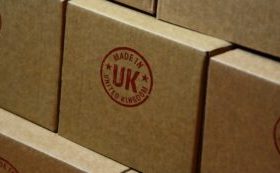NEW YORK – A medical researcher has asked a court to throw out a lawsuit that Johnson & Johnson filed against her over her 2019 study on the links between cosmetic talc products and cancer, saying that her research is sound and protected by free speech rights.
Dr. Jacqueline Moline, who has served as a plaintiffs’ expert in more than 200 cases alleging that J&J talc products caused patients to develop cancer, said in a Friday court filing in federal court in Trenton, New Jersey, that the lawsuit was an effort to “intimidate” scientific experts.
Scientific conclusions based on accurate descriptions of the data and methodology used to develop them are protected by the First Amendment of the US Constitution’s protections for free speech and academic freedom, according to Ms. Moline’s court filing.
J&J faces more than 38,000 lawsuits alleging that its talc products, including Johnson’s Baby Powder, can contain asbestos and caused cancers including ovarian cancer and mesothelioma.
The company says that its talc products are safe and do not contain asbestos.
J&J’s subsidiary LTL Management, which absorbed the company’s talc liability in a controversial 2021 spinoff, sued Ms. Moline in May and three other researchers in July, accusing them of publishing fraudulent research that harmed J&J’s reputation.
J&J in a statement on Monday reiterated a claim from the May lawsuit that Moline’s study was flawed because it claimed to focus on 33 patients who had no asbestos exposure other than their use of cosmetic talc products. But at least one study participant was exposed to an additional source of asbestos, and J&J said it believes that other study participants also have additional asbestos exposure.
An attorney for Ms. Moline declined to comment on Monday beyond what was filed in court.
Ms. Moline, who works at Northwell Health in Great Neck, New York, said in her court filing that her study properly disclosed that all information about the patients’ exposure to asbestos came from testimony that they provided during their lawsuits. The study also disclosed a potential conflict of interest related to her work as a plaintiffs’ expert.
When one patient separately filed a workers’ compensation claim that appeared to contradict her court testimony by alleging a different source of asbestos exposure, Moline updated her paper to say that she should not have included that patient, but stood by her paper’s conclusions, according to her court filing.
J&J has attempted to resolve the talc litigation by putting LTL Management in bankruptcy, and as part of that process offered $8.9 billion to end all current and future lawsuits alleging that talc causes cancer. Its efforts have so far been thwarted by court rulings that the company is not in sufficient financial distress to qualify for bankruptcy protection.
J&J has appealed those rulings, while also stepping up attacks on scientific studies that have been used as evidence in talc lawsuits.
The talc lawsuits have a mixed record at trial, with J&J winning several verdicts but losing some others, including a $2.1 billion judgment awarded to 22 women who blamed their ovarian cancer on asbestos in the company’s talc products. The lawsuits had been paused by LTL’s bankruptcy, but they are free to resume now that the bankruptcy has been dismissed.
J&J has stopped selling talc-based Baby Powder in favor of cornstarch-based products, citing an increase in lawsuits and “misinformation” about the talc product’s safety. – Reuters







